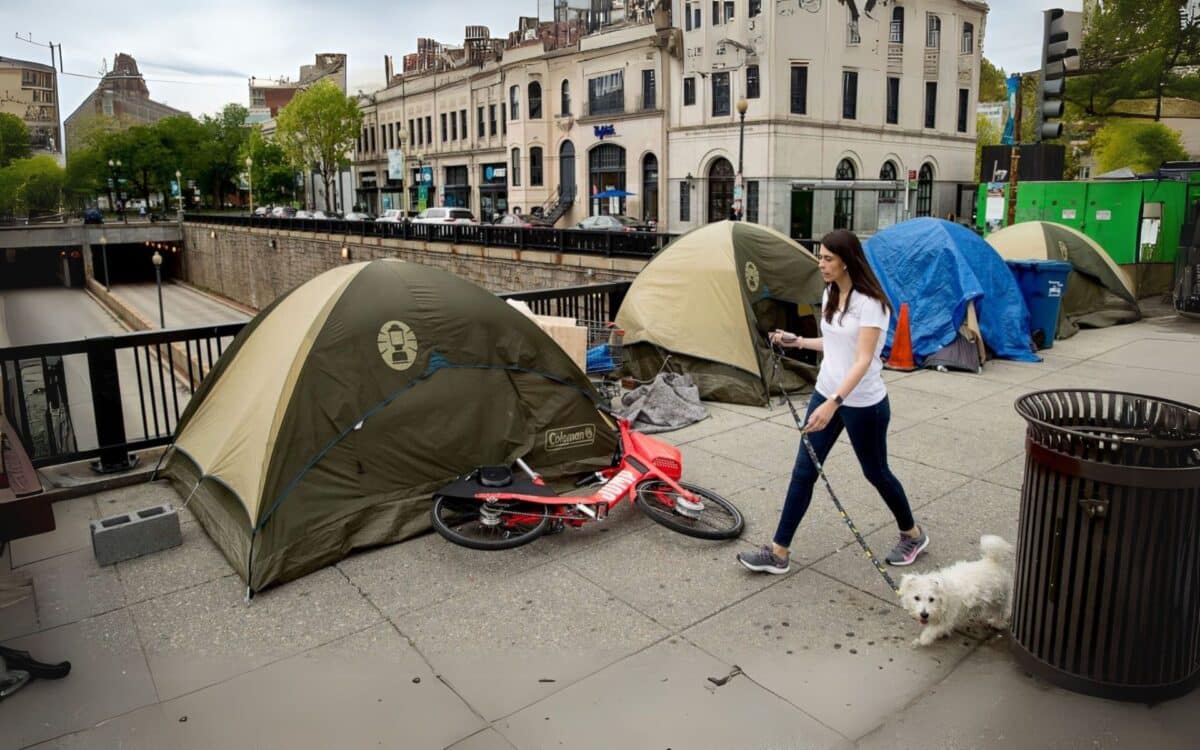California lawmakers are currently reviewing Assembly Bill 90, a significant legislative proposal aimed at addressing the growing issue of student homelessness.
The bill seeks to provide community colleges and California State University (CSU) campuses with the tools necessary to create designated overnight parking programs, offering homeless students a safe space to sleep in their vehicles.
Introduced by Democratic Assemblymember Corey Jackson, this bill is gaining traction after being approved by the Assembly Higher Education Committee with a 6-2 vote.
Newsweek reports that this initiative is part of a broader effort to tackle California’s ongoing housing crisis, which continues to impact students across the state.
Addressing Homelessness Among Students
Homelessness among students in California has reached alarming levels, with around 12% of community college students and 9% of university students affected, according to the Homeless Coordinating and Financing Council.
A 2023 survey conducted by the Community College League of California found that nearly 60% of students in community colleges are housing insecure, and one in four faces homelessness.
The new bill is designed to provide a structured and safe alternative for these students, many of whom have no access to stable housing.
What Assembly Bill 90 Entails
Assembly Bill 90 requires that community colleges and CSU campuses set up designated parking areas for homeless students, ensuring that these spaces are secure and include bathroom facilities.
The program would prioritize safety by banning alcohol, drugs, harassment, and intimidation, while also encouraging students to seek long-term housing solutions. Community colleges will be required to provide at least one lot with 50 parking spots, while CSU campuses will implement similar programs if legislative funding is approved.
The bill includes provisions for liability protection for campus employees who are acting in good faith, and it mandates detailed reporting on program usage and demographics. Colleges will be given a deadline of 2026 to develop plans for implementing the parking programs.
Concerns About Costs and Logistics
Despite the potential benefits, some critics have raised concerns about the logistics and costs of implementing these programs. California’s budget crisis, which has led to a loss of $375 million annually in state funding for CSU, has made many question the feasibility of such programs.
Some worry that parking spaces will need to be cleared each morning for regular users, adding another layer of complexity to the program’s implementation.
A similar bill introduced by Jackson last year (AB-1818) passed the Assembly but failed in the Senate Appropriations Committee due to severe cost concerns, highlighting the ongoing struggle to balance the needs of homeless students with the financial realities of California’s public education system.
What people are saying
Assemblymember Corey Jackson, author of AB-90, explained the urgent need for the bill:
This bill confronts a harsh reality. Many of our students who are sleeping in their vehicles or other displaced settings are unable to find affordable housing. And that’s jeopardizing their education.
Fox News host Hugh Hewitt voiced his opposition to the bill during an appearance on “America’s Newsroom,” criticizing it for not addressing the root cause of homelessness :
The problem in California is there are not enough homes and apartments. It’s a supply problem created over 50 years of no-growth, left-wing policies that are anti-housing. The solution is not to create homeless encampments, and each one of these will become that.
He further added :
People are going to enroll in the community college for 18 bucks a credit, and then they’re going to put their car in the community college parking lot.
Community College League of California policy manager Nune Garipian also raised concerns about the financial and administrative burden of the program:
Establishing an overnight student parking program would require significant financial and administrative resources to ensure that students have a safe, clean, and secure place to sleep at night.
He added :
Our colleges, unfortunately, just do not have these resources available.
What’s next for Assembly Bill 90?
The bill is still in its early stages, with community colleges required to vote on adopting these programs by 2026.
Implementation at CSU campuses will depend on receiving necessary legislative funding. Assemblymember Jackson has expressed his belief that the bill confronts the harsh reality that many students who are homeless or housing insecure cannot continue their education due to their living situations.
While there is support for the bill, with advocates emphasizing the need for solutions to homelessness, the path forward will depend on overcoming logistical hurdles and securing the necessary funding to make these parking programs a reality.









